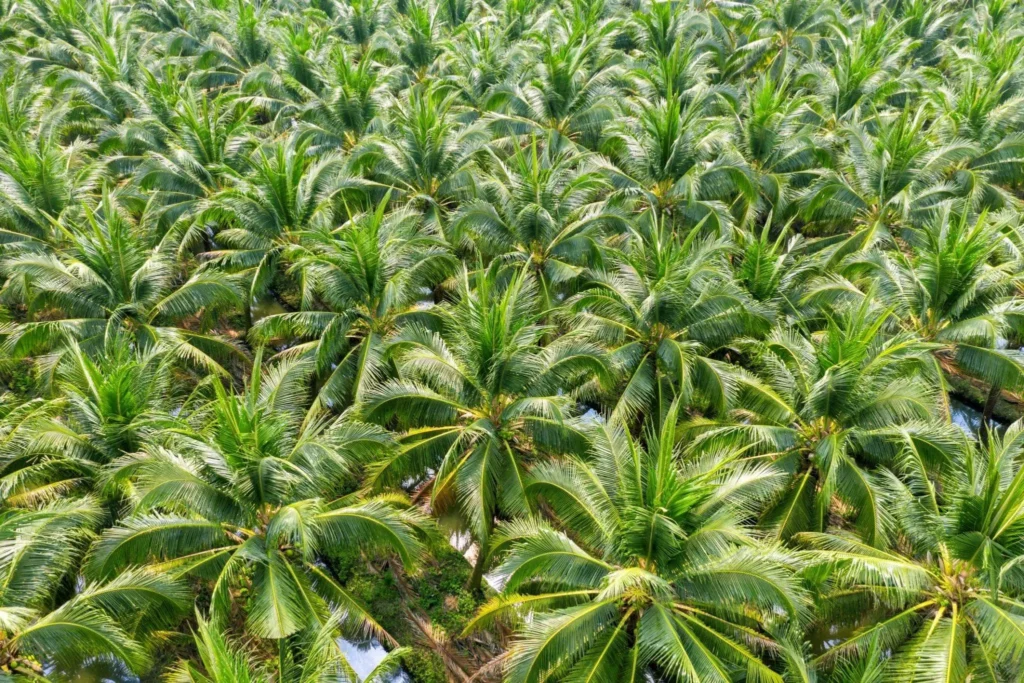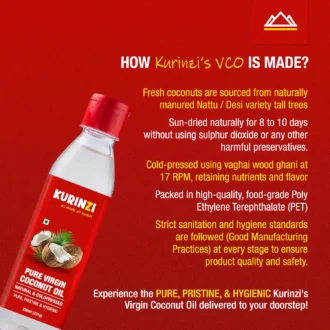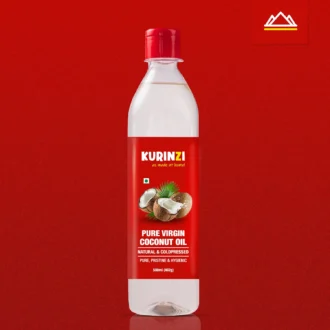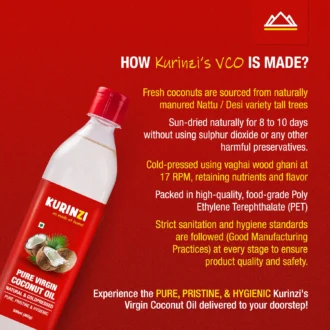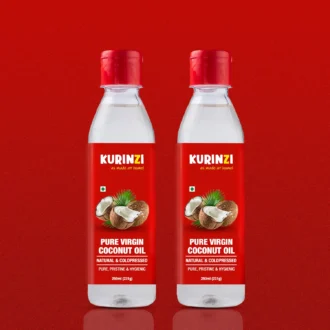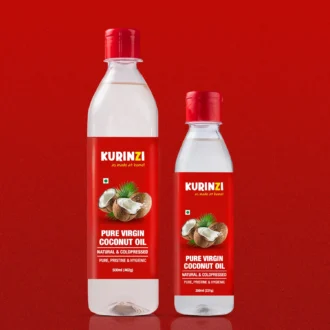Fact Files
Organic vs. Chemical Farming for Virgin Coconut Oil Production
In this deep dive, we’ll explore organic and chemical farming, weighing their pros and cons and tracing their impact on your beloved Organic Virgin Coconut Oil.
Imagine the idyllic scene of coconut trees swaying in the tropical breeze, their lush green fronds framing clusters of coconuts against the azure sky. This iconic image not only symbolizes paradise but also the source of nature’s treasure – Organic Virgin Coconut Oil.
However, the journey from coconut tree to kitchen table is far from simple. It presents a crucial choice between two farming worlds: organic and chemical farming. Each path holds profound consequences for the environment, the quality of products, and pricing. In this age of heightened health and environmental awareness, organic farming, with its sustainable, chemical-free practices, has gained immense popularity.
Yet, as the demand for organic products surges, farmers grapple with a pressing question: What’s the cost of organic certification, and how does it affect the Maximum Retail Price (MRP)?
In this in-depth exploration, we’ll delve into the nuances of these farming methods, evaluating their pros and cons. We’ll uncover how these choices ripple through every stage of cultivation, influencing not only the environment but also the cherished Organic Virgin Coconut Oil in your pantry.
Yet, there’s an often overlooked factor in the organic equation: certification costs. These hidden expenses can significantly inflate product MRPs. It’s a challenge faced by many small-scale farmers, including Kurinzi Coconut Farm, who have embraced organic practices while forgoing formal certification.
Join us as we venture through the coconut groves, unraveling the decisions made by coconut farmers and their far-reaching consequences. Discover why Kurinzi Coconut Farm, unwavering in its commitment to organic integrity, places consumer affordability over organic certification.
Organic vs. Chemical Farming: A Nuanced Comparison
Organic Farming: A Closer Look
The Pros:
Natural and Chemical-Free: Organic Virgin Coconut Oil farming relies on natural fertilizers and pest control methods. This results in coconuts that are free from chemical residues, making them ideal for producing pure and uncontaminated Organic Virgin Coconut Oil.
Nutrient-Rich Soil: Organic farming practices prioritize soil health, which directly influences the nutritional content of coconuts. Nutrient-rich soil yields coconuts that are packed with essential vitamins and minerals, translating into higher-quality Organic Virgin Coconut Oil.
Environmentally Friendly: Organic farming is sustainable and eco-friendly. It promotes biodiversity, reduces soil erosion, and minimizes pollution, preserving the environment for future generations.
Health Benefits: Organic Virgin Coconut Oil extracted from organically grown coconuts tends to be rich in nutrients and antioxidants, offering numerous health benefits, including improved heart health and better skin and hair. Additionally, organic coconuts are free from genetically modified organisms (GMOs), commonly associated with chemical farming, which have raised health concerns in recent years.
The Cons:
Slower Growth & Lower Yields: Organic farming may result in slightly slower coconut tree growth and potentially lower yield compared to chemical farming due to the absence of growth-promoting chemicals.
Chemical Farming: Boosting Productivity with Compromises
The Pros:
Higher Yield: Chemical farming methods often lead to increased coconut production. This can be advantageous for meeting high-demand markets.
Faster Growth: The use of chemical fertilizers can accelerate the growth of coconut trees, reducing the time to the first harvest.
The Cons:
Chemical Residues: Coconuts grown with chemical fertilizers and pesticides may carry residues of these chemicals. This can negatively affect the quality and safety of the extracted virgin coconut oil, potentially posing health risks.
Nutritional Dilution: While chemical farming may boost coconut yield, it often results in coconuts with lower nutritional content. The extracted oil may lack the richness in vitamins, minerals, and antioxidants found in organically grown coconuts.
Environmental Impact: Chemical farming practices can harm the environment, depleting soil quality, and contaminating water sources with harmful chemicals. This not only affects the sustainability of coconut ecosystems but also poses ecological challenges.
Understanding Organic Certification Costs
Organic certification is a meticulous process that involves adherence to stringent guidelines and regulations set forth by organic certifying bodies. This process includes, but is not limited to:
- Inspection and Documentation: Farms must maintain detailed records of all farming practices, inputs, and processes, which often necessitate additional labor and administrative efforts.
- Third-Party Certification: Certification bodies conduct on-site inspections and audits to ensure compliance with organic standards. These inspections incur fees.
- Infrastructure and Equipment: Some farms may need to invest in specific infrastructure or equipment to meet organic farming requirements.
- Transition Period: Converting conventional farmland to organic can take several years. During this transition, the farmer may face lower yields or financial challenges.
- Annual Fees: To maintain organic certification, farms must pay annual renewal fees to certification bodies.
The cumulative costs of organic certification can be substantial, particularly for small to medium-sized farms. These expenses are often passed on to consumers in the form of higher product prices.

The Impact on Maximum Retail Price (MRP)
The cost of organic certification undoubtedly influences the final MRP of organic products. The additional expenses incurred by farmers to meet certification requirements can result in higher product pricing. As a result, consumers may find organic products to be more expensive compared to conventionally produced counterparts.
Kurinzi Coconut Farm’s Unique Approach
Kurinzi Coconut Farm’s commitment to organic practices includes the use of organic manures, the avoidance of harmful chemicals, and the prioritization of sustainable cultivation methods. While not certified organic, Kurinzi’s approach ensures that consumers receive products that are grown in harmony with nature and free from harmful residues.
In summary, the choice between organic and chemical farming in coconut cultivation carries implications for the environment, product quality, and consumer affordability. Kurinzi Coconut Farm’s dedication to organic practices without formal certification demonstrates that organic integrity can be maintained while keeping product costs competitive, providing consumers with healthy and sustainable choices.
External Resources:
Organic vs. Chemical Farming: An Overview of Pros and Cons – by Raja Varun
Difference between Organic and Chemical Farming
You May Be Also Interested in
Kurinzi Virgin Coconut Oil: Sourced from Tall Variety Coconut Trees!
Have you ever tried cooking with Virgin Coconut Oil?
What is Kavala Graha Kriya (Oil Pulling): Benefits and How to Practice It?
Posted on: Instagram | Facebook | Pinterest

